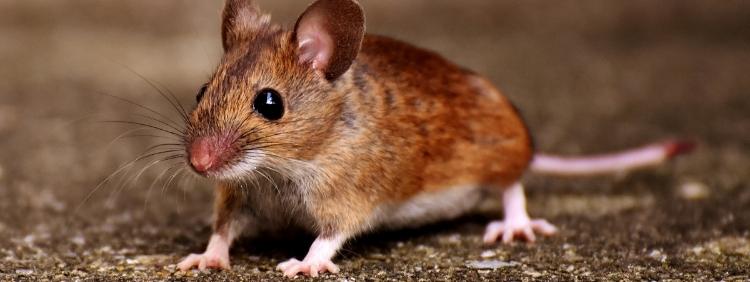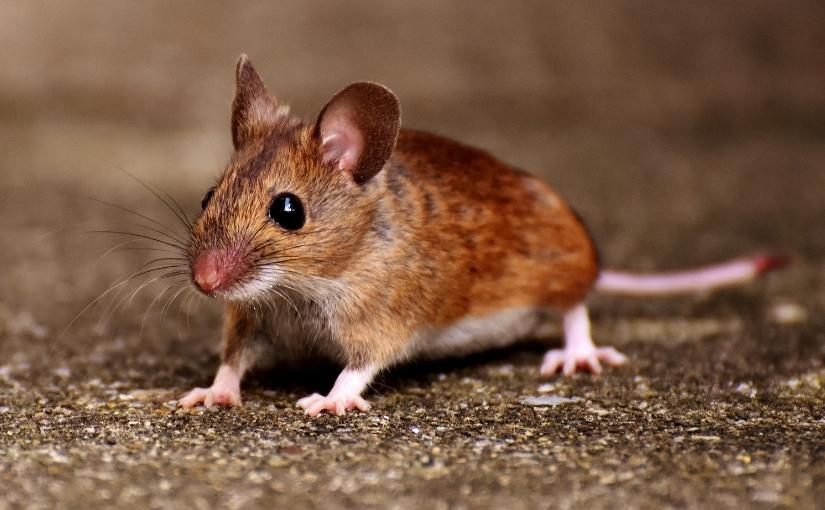
Deer mice are nocturnal creatures, which means that they’re mostly active at night. However, they leave behind signs that they’ve been on your property that you can spot at any time of day. Here’s how to identify a deer mouse infestation and how pest mice control in Kitchener can help you eliminate it for good.
What Are Deer Mice?
Deer mice are rodents that are native to eastern North America and most commonly associated with bushy, wooded areas such as prairies. They get their name because they look similar to deer due to their brown or red fur and white underside. They range between 7 and 10 centimetres in length and have a multi-coloured tail that’s dark on top and light on the bottom.
Where Do Deer Mice Live?
Also known as field mice, deer mice are usually found underneath piles of wood or stones. However, during the winter, they tend to seek indoor spaces for warmth. Some of the most common places in which they seek shelter include:
- Attics
- Basements
- Crawl spaces
- Cabinets
- Air ducts
- Closets
Deer mice can squeeze through holes as small as a shirt button, making it easy for them to enter homes through various cracks and gaps. Once they’ve entered a home, they build nests out of soft materials such as cotton, cardboard boxes or insulation.
At night, deer mice take advantage of the darkness to explore your home. They’ll use this time to gnaw on wooden structures and tear up insulation, therefore damaging the structural integrity of your home.
How Do You Know You Have an Infestation?
Although you probably won’t be awake to catch deer mice at night, there are several telltale signs that you can look for during the day. Two of the most obvious clues are urine and droppings. Considering that deer mice produce between 50 and 75 droppings a day, you’ll probably find them scattered throughout your house, from cupboards to kitchen pantries. Mice droppings are about the size of a grain of rice and are tapered at one end, while their urine has a strong, musky odour.
In addition, hearing chewing, scratching or scurrying sounds coming from inside walls or ceilings at night is another clear sign of mouse problems. If you’re unsure, you can tap on the wall or ceiling where the noise originated from. If the sound stops for a few seconds but resumes soon after, this usually indicates that mice are nesting in your home.
Deer mice constantly chew through materials to sharpen their teeth, so hearing gnawing sounds can be another indicator of an infestation. If mice don’t continually gnaw, their teeth can become so long that they’re no longer able to eat.
Are Deer Mice Dangerous?
Although deer mice may seem harmless, they carry hantavirus pulmonary syndrome, a viral infection that can lead to life-threatening respiratory problems. This disease is characterized by flu-like symptoms such as:
- Fever
- Fatigue
- Muscle aches
- Nausea and/or vomiting
- Abdominal pain
- Chills
- Dizziness
Hantavirus is spread through mouse urine, feces and saliva. Therefore, it’s essential that you keep your distance and contact mice removal services as soon as possible to get rid of the threat.
How Pest Mice Control in Kitchener Can Help
While some homeowners attempt to take matters into their own hands, trying to eliminate a mouse infestation on your own is not only a difficult task but also extremely dangerous. Mice are clever creatures, often finding new ways to make themselves at home on your property and learning how to avoid your traps. Therefore, it’s best to enlist the help of a skilled professional to tackle this issue. Contact Truly Nolen today to learn more about how we can eliminate your mice infestation for good.
